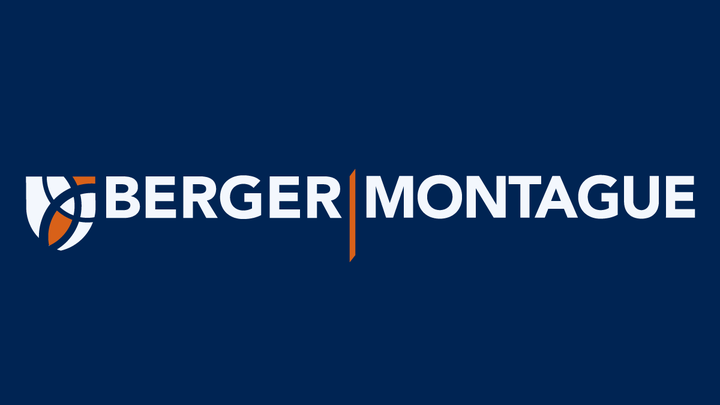Overview
Case Number: 2:23-cv-00828-GAM
Practice Area: Antitrust
Case Status: Pending
Court: United States District Court for the Eastern District of Pennsylvania
Table of Contents
Overview
Berger Montague, a leader in antitrust litigation, has been fighting Merck over their antitrust activities for several years now. We’re pleased to announce that in our ongoing case representing the City of Baltimore and a proposed class of indirect purchasers of pediatric vaccines, we received an opinion denying Merck’s motion to dismiss the case.
The case centers on the high cost of a particular rotavirus vaccine (Merck’s RotaTeq) and suspected violations of the Sherman Antitrust Act. After our investigation with our co-lead counsel, Cohen Milstein, we presented evidence supporting our claim that vaccine manufacturer Merck was violating federal and state antitrust laws at the consumer’s expense.
Case Summary: Plaintiff v. Merck Sharp & Dohme Corp.
Our History Fighting Merck and Bundled Rebates
Two years ago, after two trips to the Third Circuit, we represented a different client over the same matter. That time, Merck moved to compel arbitration in that case, and we ultimately lost that fight after two trips to the Third Circuit. Merck was able to halt the case over our proposed class of direct purchasers.
We would not be deterred and returned to the courtroom representing the indirect purchaser. In Mayor And City Council Of Baltimore v. Merck Sharp & Dohme Corp., Berger Montague represents the plaintiff. In this class action, our client is the City of Baltimore and a proposed class of indirect purchasers of pediatric vaccines used to treat rotavirus.
We’ve recently had some excellent updates on this ongoing case and are pleased to share the news:
Berger Montague Representing Indirect Purchasers
We’re working to prove the claim that Merck violated antitrust laws, making it nearly impossible for GlaxoSmithKline (GSK), a United Kingdom-based biopharma company, to keep the prices of their rotavirus vaccine competitive. Merck overpowered GSK’s new rotavirus vaccine through their monopoly power through a variety of means, including enacting a “loyalty” condition in their existing vaccine contracts.
These stipulations required customers to buy nearly all their rotavirus vaccines — and other vaccines — from Merck to avoid considerably higher prices. Consequently, a “disloyal” customer would pay higher prices for all the vaccines the customer purchased from Merck, not just the rotavirus variety. As such, GSK couldn’t offer bundled vaccines, keeping their prices inflated and, therefore, uncompetitive. As these vaccines are indispensable, purchasers had no option but to pay the inflated prices.
The Berger Montague team behind this case is Eric L. Cramer, Dan Walker, Josh Davis, Russell Paul, David Langer, Grace Ann Brew, and Max Brandy.
The Cases Behind Our Argument
With respect to the plaintiff’s antitrust claims, our opinion has a number of helpful rulings, a few of which are highlighted here:
We are basing our theory on Castro v. Sanofi Pasteur Inc., No. 2:11-cv-07178 (D.N.J.), a past win of ours fighting over the inflated prices of Sanofi Pasteur Inc.’s vaccines. We settled this class action for $61.5 million; Eric L. Cramer and Michael Kane of Berger Montague led the case, especially in class certification and the Daubert hearing. Our argument is also bolstered by a 2003 case, LePage’s Inc. v. 3M, that centered on monopoly and bundled rebates.
Merck Rotavirus Vaccine Antitrust Case Updates
In November 2023, Merck made a motion to dismiss our case. Their argument challenged our assertions of violations of the federal antitrust laws, indirect purchaser claims under the antitrust laws of 27 states, and claims for violations of the consumer protection laws of 17 states. After a long, in-depth review, the Court denied their motion on all of these (excluding their consumer protection claims under Idaho and Utah’s laws).
The Court rejected Merck’s argument that the complaint’s allegations were conclusory. Furthermore, the Court highlighted that the complaint provided eight lengthy paragraphs across three pages that discussed market foreclosure. Contrarily, it was Merck who offered “conclusory” arguments because it relied on little more than the general principles of pleading discussed in Iqbal. The opinion further held that the complaint’s market foreclosure allegations were buttressed by additional specific allegations regarding the way in which the conduct blocked purchasers from switching to competitor vaccines.
The Court also found that the plaintiff has standing to seek injunctive relief for Merck’s continuing violation of the antitrust laws as Merck continues to enter into contracts that incorporate its bundled pricing scheme.
The case is ongoing, and we look forward to posting more updates on our work.
About Berger Montague
National, award-winning law firm Berger Montague has focused on civil litigation at the federal and state levels for over 50 years. Our award-winning firm takes on incredibly complex cases in several practice areas. Our scope of work includes antitrust, consumer protection, defective products, healthcare, and more. We have over 90 lawyers, and our team only continues to grow — notably, our premier antitrust practice has grown with two world-class attorneys.
We are here to fight for wronged parties and bring perpetrators to justice. If you or your business has suffered due to anticompetitive conduct or anti-trust violations, please contact Berger Montague.
Practice Area

"*" indicates required fields
By clicking SUBMIT you agree to our Terms of Use and Privacy Policy and you are providing express consent to receive communications from Berger Montague via calls, emails, and/or text messages.









